
Basel AML Index 2015 Report
Publication Year: 2015 / Sources: Basel Institute on GovernanceThis is the fourth edition of the Basel Anti-Money Laundering (AML) Indexreportdeveloped by the Basel Institute on Governance. The Basel Institute published the Basel AML Index for the first time in 2012 and has since then been the only non-profit organisation to rank countries according to their risk of money laundering and terrorist financing. This year covering 152countries, the Basel AML Index provides an annual risk rating of money laundering and terrorist financing. It is based on the assessment of the quality of countries’ anti-money laundering and countering the financing of terrorism(AML/CFT)frameworks and related factors such as financial sector standards and public transparency.
Download: English | Khmer
Basel AML Index 2014
Publication Year: 2014 / Sources: Basel Institute on GovernanceThe 2014 edition is the third annual release of the Basel Anti-Money Laundering (AML) Index developed by the Basel Institute on Governace, through its International Centre for Asset Recovery. The 2014 edition covers 162 countries, 13 more countries than the 2-13 edition. Ranking countries according to their risk of money laundering and terrorist financing is not a simple task and faces methodological challenges.
Download: English | Khmer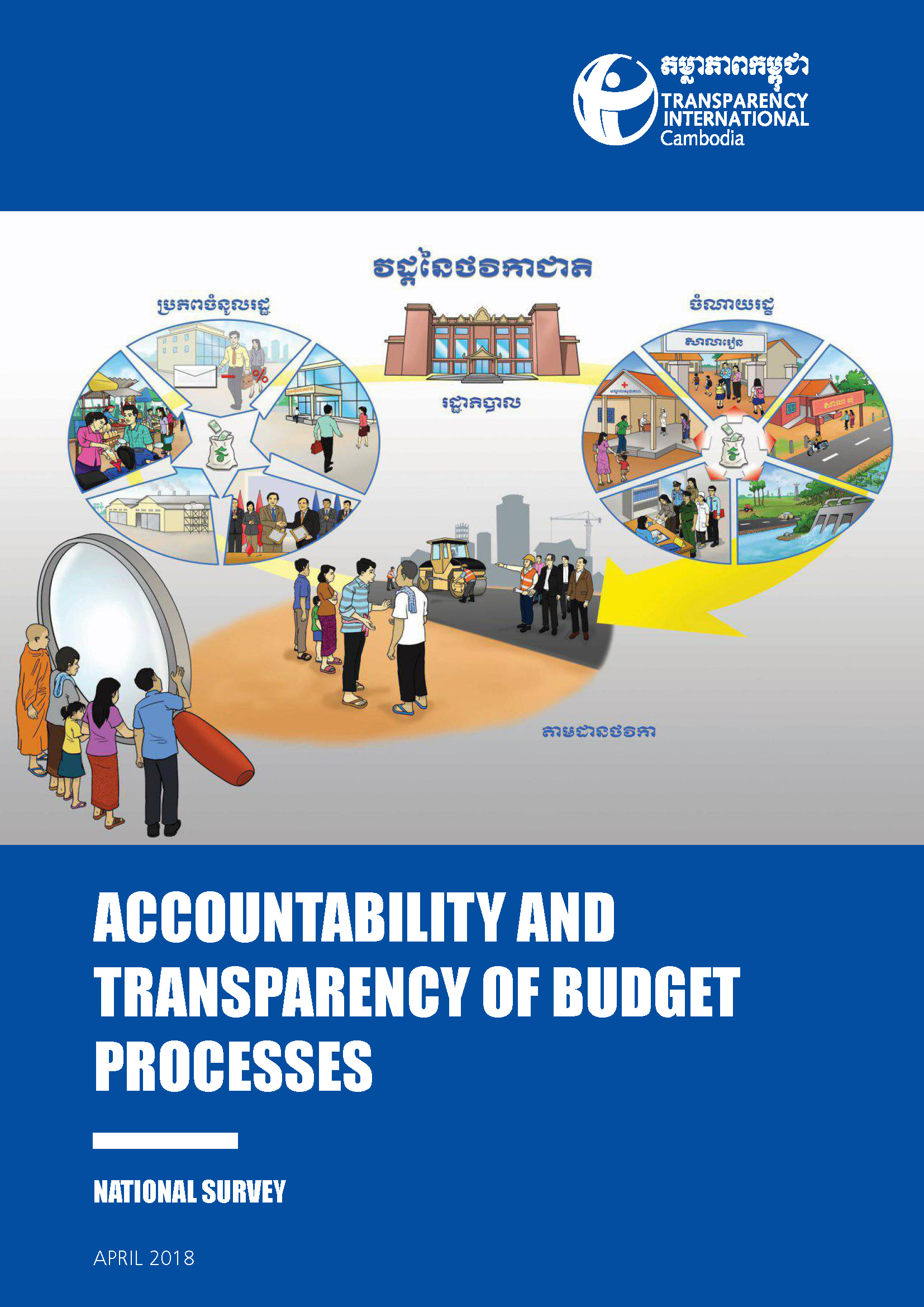
Summary survey report on Accountability and Transparency of Budget Process
Publication Year: 2018 / Sources: Transparency International CambodiaThrough a nationally representative survey of 1,596 individuals residing across all 25 provinces of Cambodia, this survey report aims to: a) understand and quantify citizens’ perceptions and attitudes regarding the transparency and accountability of budgets in Cambodia; and b) understand and quantify citizens’ awareness and experience in dealing with budget and budgeting issues in the country.
Download: English | Khmer
Full survey report on Accountability and Transparency of Budget Process
Publication Year: 2018 / Sources: Transparency International CambodiaThrough a nationally representative survey of 1,596 individuals residing across all 25 provinces of Cambodia, this survey report aims to: a) understand and quantify citizens’ perceptions and attitudes regarding the transparency and accountability of budgets in Cambodia; and b) understand and quantify citizens’ awareness and experience in dealing with budget and budgeting issues in the country.
Download: English | Khmer
The Open Budget Survey 2017
Publication Year: 2017 / Sources: International Budget Partnership (IBP)The Open Budget Survey 2017 shows a modest decline in in average global transparency scores, halting progress toward greater transparency that surveys over the past decade have identified. This means that many governments are making less information available about how they raise and spend public funds than they did in 2015. This finding is particularly discouraging given that roughly three-quarters of countries assessed publish insufficient budget information. In addition to these transparency challenges, the Open Budget Survey 2017 assessment of budget oversight finds that most countries have limited or weak
Download: English | Khmer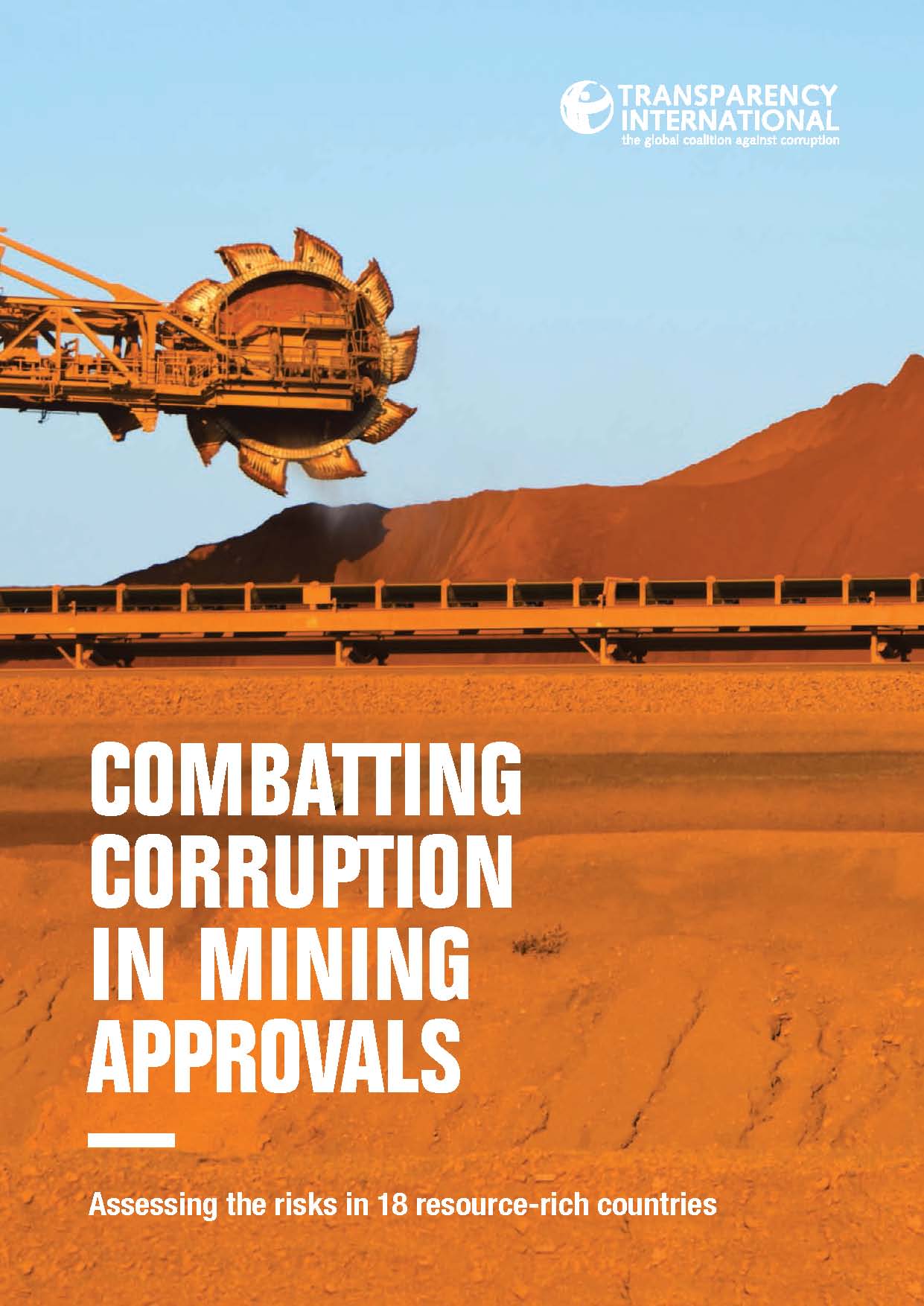
Combatting Corruption in Mining Approvals
Publication Year: 2017 / Sources: Transparency InternationalCombatting Corruption in Mining Approvals (Assessing the risks in 18 resource-rich countries)
Transparency International has assessed the risks that can lead to corruption in 18 resource-rich countries to identify the warning signals as early as possible. This report demonstrates where and how corruption can get a foothold in mining approvals processes before ground is even broken. It presents examples from a range of diverse countries and identifies important roles for government, the mining industry and civil society to identify, prevent and mitigate these risks.
Download: English | Khmer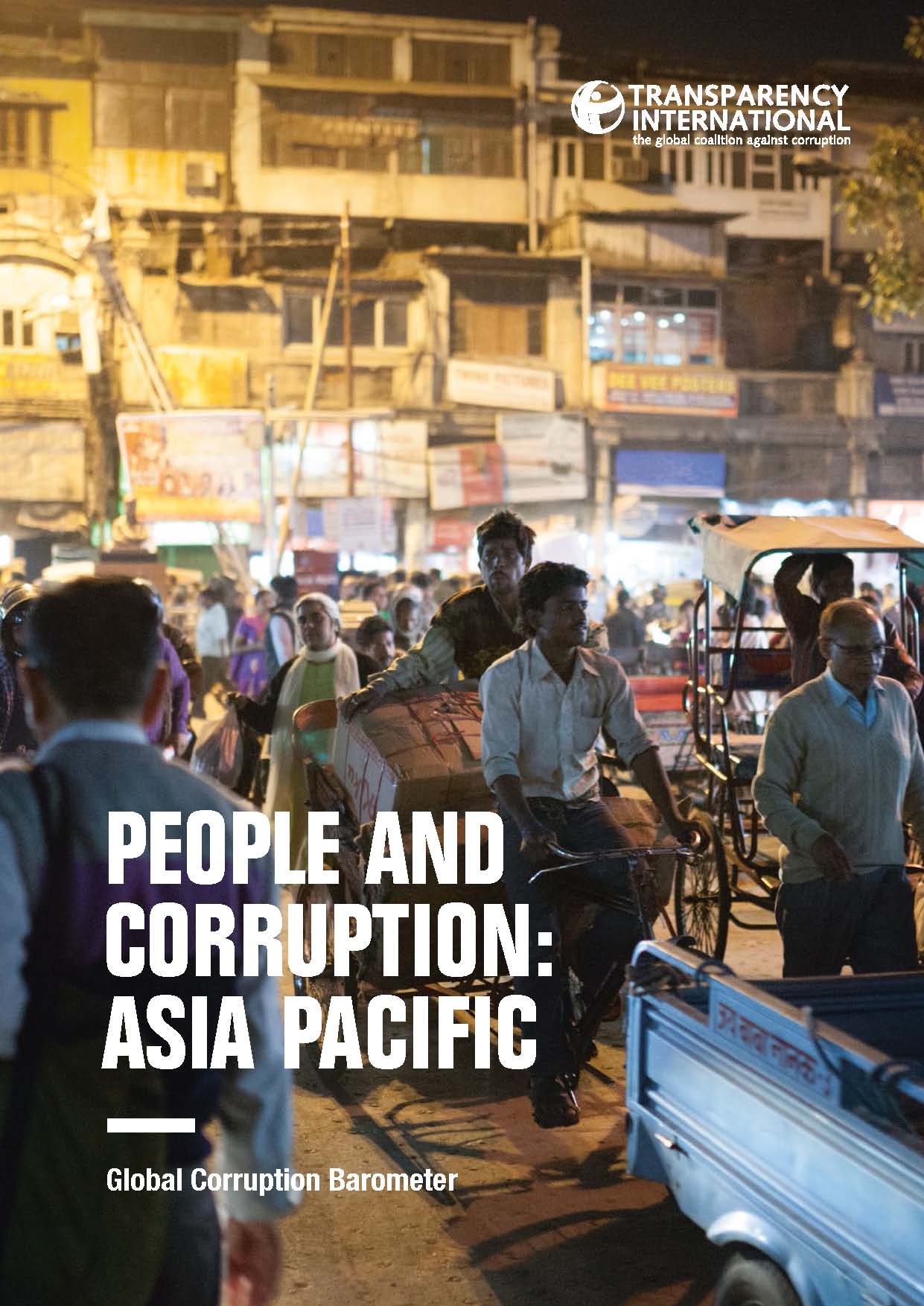
People and Corruption: Asia Pacific
Publication Year: 2017 / Sources: Transparency InternationalPeople and Corruption: Asia Pacific (Global Corruption Barometer)
In the most extensive survey of its kind, we spoke to 21,861 people in 16 countries, regions and territories across the Asia Pacific regions between July 2015 and January 2017 about their perceptions and experiences of corruption.ii The survey results show a great diversity in the corruption risks across the region, but in every country surveyed there is scope for improved approaches to corruption prevention.
Download: English | Khmer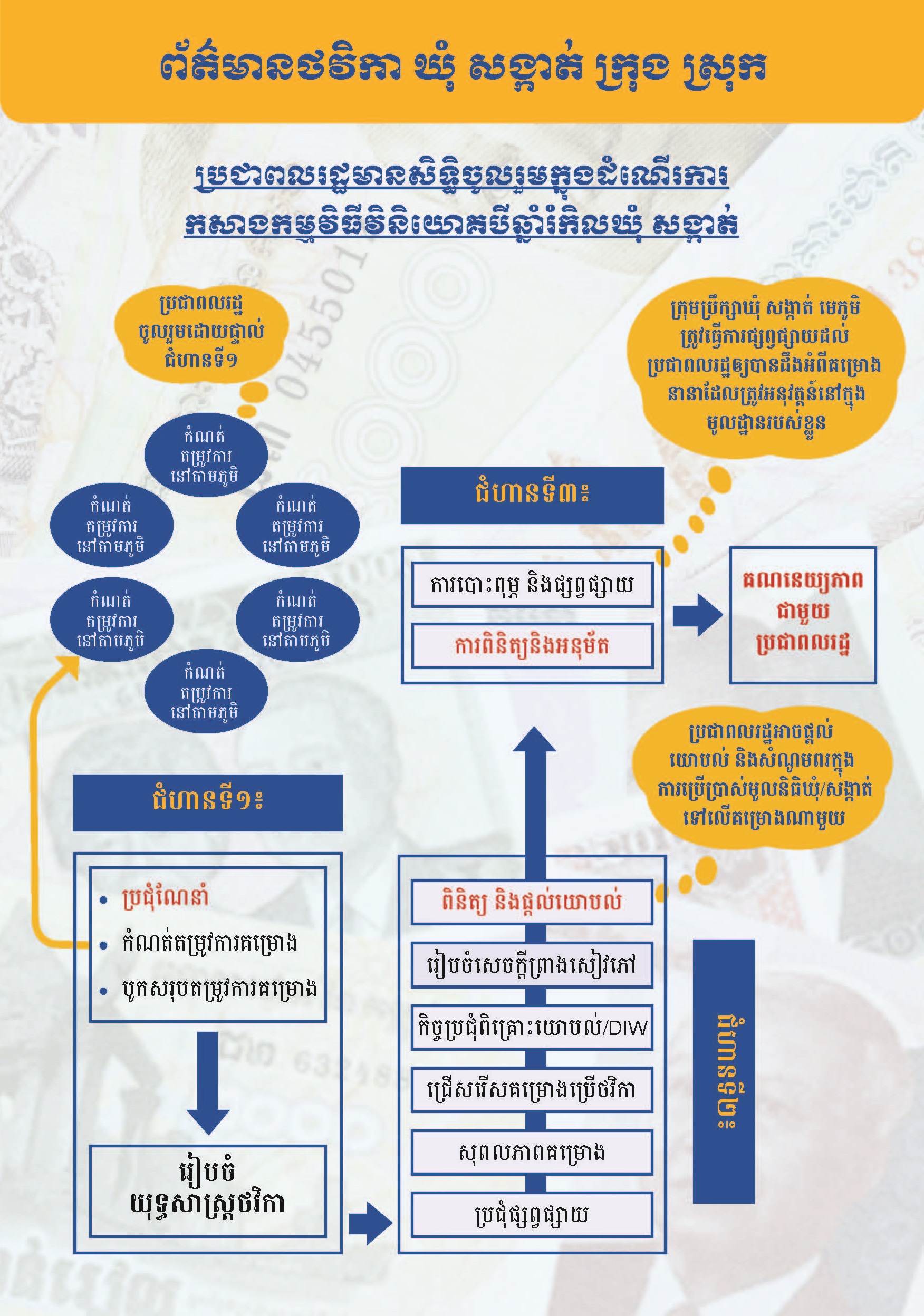
Leaflet on Commune/Sangkat, Municipal/District Budget Information
Publication Year: 2017 / Sources: API & TI CambodiaLeaflet on Commune/Sangkat and Municipal/District Budget Information
Download: English | Khmer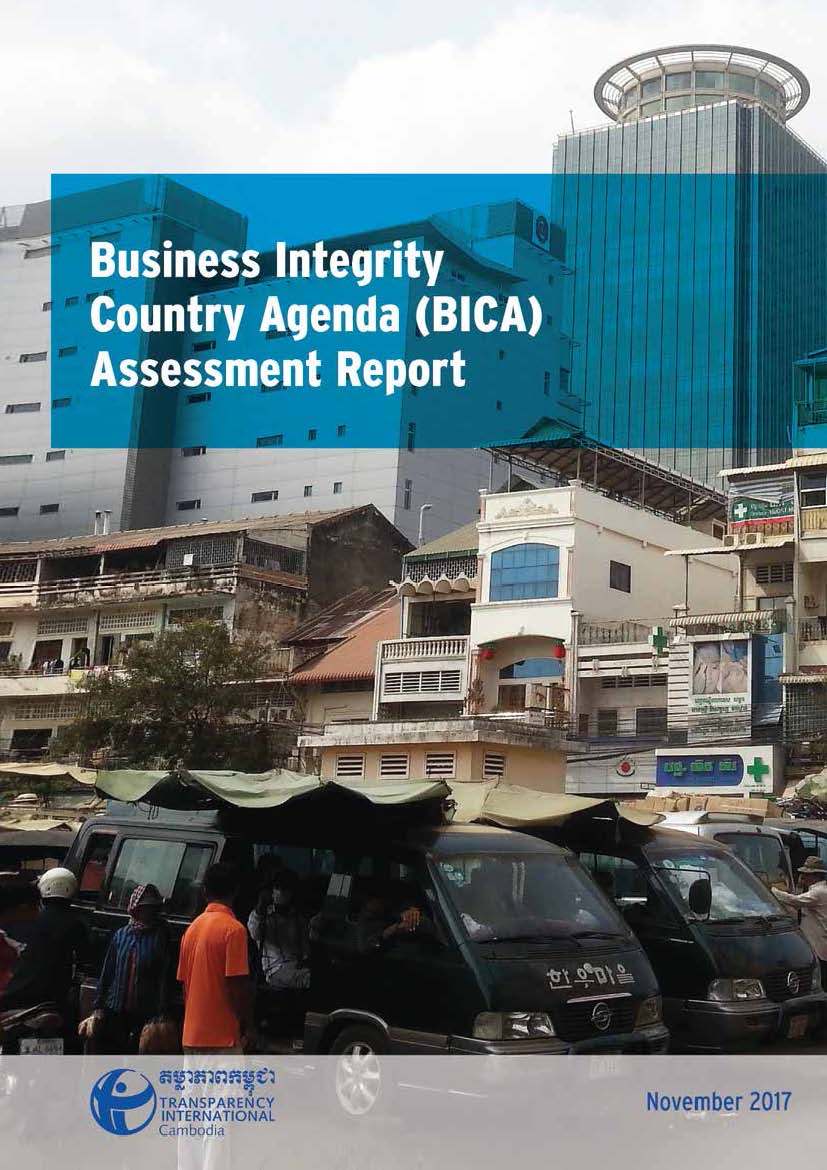
Business Intergrity Country Agenda Assessment Report
Publication Year: 2017 / Sources: Transparency International CambodiaThe BICA Assessment Report is a baseline assessment of public, private and civil society sector efforts to promote business integrity, particularly accountability, transparency, and integrity in business practices. This report seeks to further understand the factors and actions that can increase business integrity in Cambodia, in order to facilitate public, private, and civil society efforts to diminish corruption.
Download: English | Khmer
Rule of Law Index 2015
Publication Year: 2015 / Sources: World Justice Project (WJP)The Rule of Law Index 2015 was prepared by The World Justice Project (WJP)’s research team. This research has measured on 8 factors: constraints on government powers, absence of corruption, open government, fundamental rights, order and security, regulatory enforcement, civil justice, and criminal justice. A ninth factor, informal justice, is measured but not included in aggregated scores and rankings. These factors are intended to reflect how people experience rule of law in everyday life. This WJP Rule of Law Index 2015 are derived from more than more than 100,000 household and expert surveys in 102 countries and jurisdictions. The report showed that Cambodia ranked 99 out of 102 countries and dead last in the East Asia and Pacific region.
Download: English | Khmer